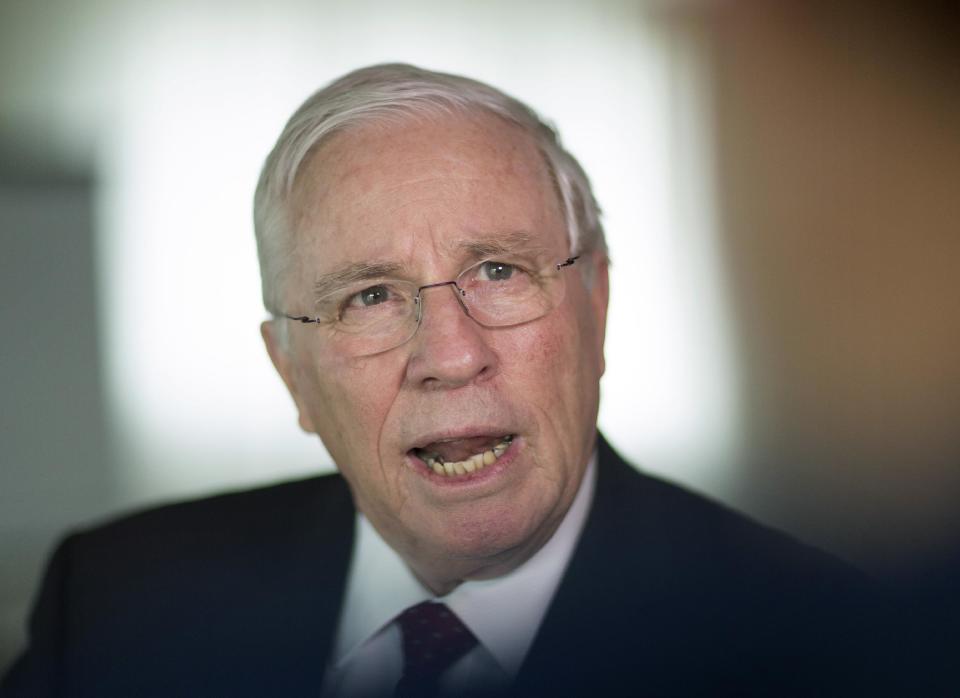Swiss consider citizenship for third-generation foreigners
GENEVA (AP) — High-school student Selena Mercado was born in Switzerland, has gone to school in Switzerland, considers herself Swiss and dreams of a political career here one day. But her passport is from Chile, a country that she's never set foot in but was home to her grandparents before they moved to this small Alpine nation decades ago.
Being born in Switzerland doesn't mean automatically mean becoming Swiss, a situation echoed in a few other European nations.
On Sunday, Swiss voters will decide whether to make it easier for young "third-generation foreigners" like the 17-year-old Mercado, giving them the same fast-track, simplified access to Swiss citizenship that foreign spouses of Swiss nationals often enjoy.
The issue resonates in a country that has long taken in foreigners and underlines a dilemma faced across Europe these days: How best to integrate newcomers, if at all, at a time of rising nationalism.
Mercado is among thousands of foreigners who have become so integrated that they're all but Swiss — just not legally.
"When I tell people I want to give back to Switzerland, they just say, 'you can't, you're not Swiss,'" Mercado, who lives in the town of Vallorbe on the French border, said Friday in a phone interview.
The issue is one of three being considered in Sunday's referendum, the latest installment of Switzerland's direct democracy.
One referendum topic has to do with financing for infrastructure. The other — also with important implications for Switzerland's relations with its neighbors — centers on corporate tax reform.
Polls suggest the "simplified naturalization of third-generation immigrants" will pass. It would make for less paperwork, fewer delays and lower fees for anyone under 25 whose parents and grandparents have lived in Switzerland for years but who did not go through the time-consuming, onerous naturalization process.
Mercado said her family moved around a lot, making an application for highly-coveted Swiss citizenship through the usual channels — generally 12 years of residency is the minimum requirement — a daunting process for her.
Candidates for citizenship are required to master at least one of Switzerland's four national languages — German, French, Italian or Romansh — respect its legal order, and honor "fundamental values" of the Constitution, such as equal rights for women and men and freedom of conscience.
While just under 25,000 people would be affected if the measure passes, the long-term implications are far-reaching: Roughly one in four of Switzerland's total population of 8.2 million are foreigners — one of the highest such percentages in Europe.
Switzerland, which is not in the 28-nation European Union but is all but surrounded by bloc members, has been taking in foreigners for centuries. A quick look at its national soccer team reflects a wide spectrum of backgrounds.
But the populist Swiss People's Party (SVP), which now has the most seats in Switzerland's two-chamber Federal Assembly, has dug in its heels. It insists Switzerland has been too lax in allowing "mass naturalization" over the last 15 years, and says authorities have let in people "who are not integrated and don't identify with our legal rules."
The party is strongly against the simplified naturalization proposal.
Many populists have ridden growing concerns about an influx of migrants and refugees from war-torn or impoverished areas of the Middle East and Africa. But most of the people affected in Sunday's vote have roots in Switzerland's European neighbors and came long before Europe's recent wave of immigration.
The SVP's youth wing has sought to muddle the issue, posting on its website an image of a silhouetted person holding up a rifle under the question "Islamists with a Swiss passport?" and urging the Swiss to vote "no" on Sunday.



